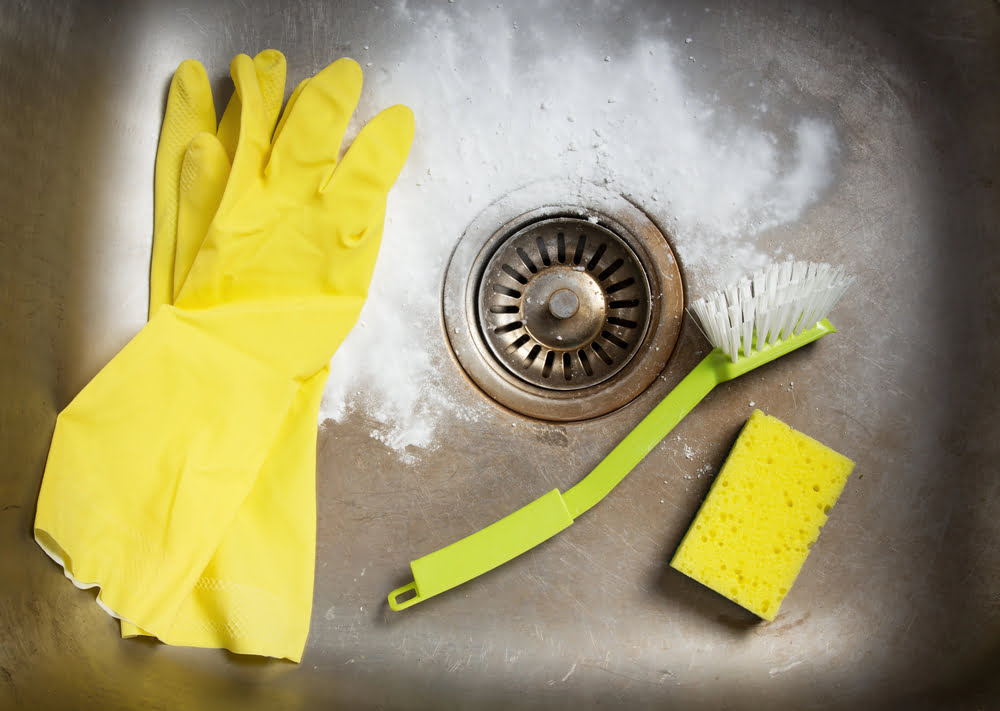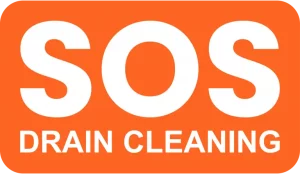
If you’ve got a clogged drain, it’s tempting to reach for a bottle of chemical drain cleaner. The idea of a liquid drain cleaner is great: Just pour it into a clogged drain, wait, and the problem’s solved with no fuss or mess. And how bad could they be if they sell them at every home improvement store?
The answer is: Actually pretty bad! Read on to learn more.
How Do Chemical Drain Cleaners Work?
Chemical drain cleaners typically contain either strong acids (like sulfuric acid) or strong alkalis (like sodium hydroxide or lye). In either case, they’re designed to dissolve organic substances like hair and grease that can clog drains.
The problem is, that you, your friends, family members, and pets are also made of “organic substances”. That means you need to be super careful if you ever use a chemical cleaner.
What Are the Risks Associated With Using Chemical Drain Cleaners?
Health Hazards
Here’s some warning text that we copied right off the side of a bottle of chemical cleaner at our local hardware store:
“DANGER: CORROSIVE – CAUSES IRREVERSIBLE EYE DAMAGE. MAY PRODUCE SEVERE BURNS. ATTACKS SKIN AND EYES. DO NOT GET IN EYES, ON SKIN, OR ON CLOTHING. HARMFUL IF SWALLOWED.”
It’s easy to accidentally splash yourself when pouring a liquid drain cleaner down a drain, which could cause an injury, or at least ruin the clothing you’re wearing. If it doesn’t work, and you need to call a plumber to fix the drain, the chemical drain cleaner will still be in there, which is a risk for both them and their equipment.
Drain cleaning liquids can also release toxic fumes, especially if accidentally mixed with common household cleaners like ammonia.
Harm to the Environment
The City of Calgary website specifically says, “Never flush chemicals down your toilet, sink or drain as they harm the environment and/or the pipes in your home”. Our bylaws actually prohibit pouring hazardous chemicals like drain cleaners down your drains, and specify a $1,000-$3,000 fine for doing it!
Damage to Pipes
In most newer homes, a chemical cleaner shouldn’t cause significant damage to your plumbing system. Most homes built since the ‘70s have ABS or PVC pipes that withstand short exposure to harsh chemicals.
If you have an older home, you may have copper drain pipes. Copper pipes erode away over the years, and using a chemical drain cleaner on these older pipes, and especially letting it sit in a drain for a long time, could burn a hole right through the bottom of the pipe. If that happens, instead of just a clogged drain, you’ll have wastewater (not to mention the drain cleaner) leaking into your wall or ceiling.
The harsh chemicals in many drain cleaning liquids can also harm septic tanks.
Enzymatic drain cleaners
Some manufacturers sell drain cleaning liquids that use enzymes to break down clogs instead of harsh chemicals. These are much safer than chemical cleaners, and some can even be used without hand protection. Enzymatic cleaners are also safer for septic systems than chemical drain cleaners are.
Enzymatic drain cleaners aren’t that commonly available in Canada, though. They’re also usually meant to be used as preventative maintenance to keep drains from clogging rather than for opening clogged drains. Even enzymatic products advertised as being able to unclog blocked drains often take longer to remove clogs than tools or chemical drain cleaners do.
What Are the Alternatives to Chemical Drain Cleaners?
There are lots of articles on the internet saying to pour baking soda and vinegar down a slow drain, but in our experience, this usually doesn’t help. Mixing baking soda and vinegar just causes a chemical reaction that produces water, carbon dioxide gas, and lots of bubbles, which looks neat, but isn’t very effective at removing clogs.
The most effective DIY fixes for slow drains aren’t harsh chemicals, but good old-fashioned tools. Plungers aren’t just effective at unclogging toilets: They’re equally effective at unclogging sinks. Home improvement stores even sell small plungers specifically for sinks. They also sell hair clog removers (basically little flexible sticks with teeth on them), which are super helpful for pulling long hair out of bathroom drains. If you have a wet/dry vacuum, sometimes you can even suck a clog out of your drain!
If none of those options fix the drain, your next choice is to buy or rent a drain snake or auger.
If a drain clog is very deep in your pipes, or otherwise too tough to remove yourself, it’s time to call for Calgary drain cleaning help. That’s where SOS Drain Cleaning comes in—we’re always happy to provide fast, professional, effective assistance unclogging your drains, and to fix any other plumbing problems you might have!




